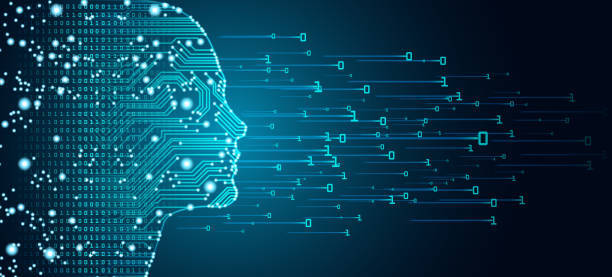'AI's effects will not naturally lean toward inclusion or equity'

Artificial intelligence (AI) is often presented as the next pinnacle of human innovation because of its potential to revolutionize industries, transform economies, and improve lives. But will it truly benefit everyone or will it exacerbate existing disparities?
The answer depends on how the technology is developed, deployed, and governed. Without decisive intervention, AI's potential will be exploited for limited benefits by those who prioritize profits over people.
It's encouraging that the cost of AI development is showing promise. While OpenAI's GPT-4 training cost $100 million, the comparable model from Chinese startup DeepSeek cost a fraction of that. This trend has promising implications for developing countries, which generally lack the massive financial resources required for previous AI innovations, and which may soon be able to access and leverage these technologies more affordably. The decisions we make today will determine whether AI becomes an instrument of inclusion or exclusion.
Focus public resources To ensure this technology serves humanity, we must focus on incentives. Today, AI development is largely dictated by market forces, with an excessive focus on automation and the monetization of personal data . The few countries leading the way in AI technologies are investing billions of dollars in applications that replace labor and exacerbate inequality. To make matters worse, public subsidies frequently focus on technical merits, often targeting efficiency, without sufficient consideration of their direct and indirect social impact.
When jobs disappear, economic, social, and political instability tends to ensue. Yet public funding continues to flow toward automation. Governments must readjust incentives to encourage AI to serve social needs, such as improving education and health outcomes and combating climate change.
AI should enhance, not replace, human workers. The aging population is a significant challenge in some countries. While domestic robots can help solve some of the problems of an aging population, the current development frontier focuses on priorities such as dynamic performance (running, jumping, or obstacle avoidance) in outdoor environments, rather than functions focused on safety and convenience, daily living assistance, or chronic disease management.
The task cannot be left solely to venture capital, which in 2024 channeled $131.5 billion into startups, largely pursuing overhyped and speculative technologies like general artificial intelligence. More targeted models can improve medical diagnosis, assist radiologists, predict natural disasters, and much more. Redirecting investments toward solutions that directly benefit society is essential to keeping AI development aligned with collective progress, rather than shareholder value.

The digital divide could widen if AI isn't made accessible to everyone. Photo: iStock
It is also necessary to narrow the gap between developed and developing economies . The transformative potential of AI remains largely untapped in low- and middle-income countries, where inadequate infrastructure, limited capabilities, and scarce resources hinder its adoption. If left unaddressed, this technological gap will only widen global inequalities.
Consider what AI could do for healthcare. It could expand access to personalized medicine, offering patients in resource-limited settings tailored treatments with greater effectiveness and fewer adverse effects. It could aid diagnosis, helping doctors detect diseases earlier and with greater accuracy. And it could improve medical education, using adaptive learning and real-time feedback to train medical professionals in underserved areas.
More broadly, AI-powered adaptive learning systems are already personalizing educational content to meet individual needs and fill knowledge gaps . AI tutoring systems offer personalized instruction that increases engagement and improves outcomes. By making it vastly easier to learn a new language and acquire new skills, the technology could drive a massive expansion of economic opportunity, especially for marginalized communities.
Other features The uses aren't limited to healthcare and education either. Oxford University's Inclusive Digital Model demonstrates that equipping marginalized groups—especially women and young people—with digital skills enables them to participate in the global digital economy, reducing income disparities.
But global cooperation is crucial to unlocking these benefits. AI must be addressed collectively—for example, through South-South initiatives to create solutions tailored to the circumstances and needs of developing countries. By fostering partnerships and knowledge sharing, low- and middle-income countries can bridge the technology gap and ensure that AI serves a wide range of stakeholders beyond the dominant players.
Then there is the question of safety and ethical use. These issues must also be addressed on a global scale. Without strong ethical frameworks, AI can be used—and has already been used—for harmful purposes, from mass surveillance to the spread of misinformation.
The international community will need to agree on shared principles to ensure that AI is used consistently and responsibly. The United Nations, through inclusive platforms such as the Commission on Science and Technology for Development, can help shape global regulations. Key priorities should be transparency (ensuring that AI decision-making is discernible and explainable), data sovereignty (protecting individuals' and countries' control over their own data), harm prevention (prohibiting applications that undermine human rights), and equitable access. Multilateral initiatives to develop digital infrastructure and skills can help ensure that no country is left behind.

Ethical uses of AI could transform lives in developing countries. Photo: Istock
This isn't just an issue for policymakers and the private sector. Throughout history, transformative change has often started from the bottom up. Women's suffrage, the civil rights movement, and climate activism all began with grassroots efforts that grew into powerful forces for change. A similar movement is needed to steer AI in the right direction. Activists can highlight the risks of unregulated AI and pressure governments and companies to prioritize human-centered innovation.
The social, economic, and political effects of AI will not naturally lean toward inclusion or equity. Governments must orient incentives toward innovation that enhances human potential. Global organizations must establish ethical frameworks to safeguard human rights and data sovereignty. And civil society must hold political and business leaders accountable.
The decisions made today will determine whether AI becomes a bridge or a gap between the world's rich and poor. International collaboration, ethical governance, and public pressure can ensure we make the right decisions.
SHAMIKA SIRIMANNE (*) AND XIAOLAN FU (**)
(*) Senior Advisor to the UN Secretary-General on Trade and Development.
(**) Founding Director of the Centre for Technology and Management for Development and Professor of Technology and International Development at the University of Oxford.
eltiempo





